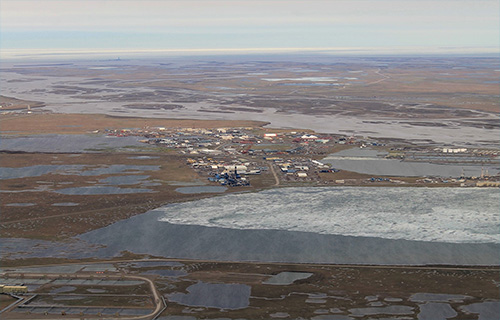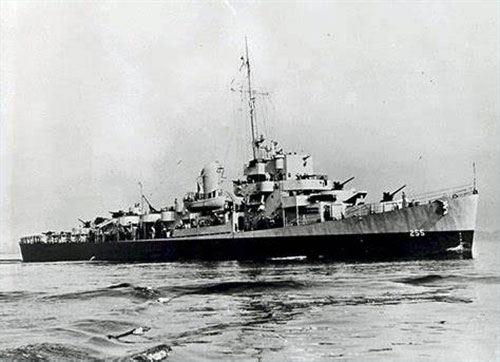








Weekly Specials
Online Shopping; Pickup or Delivery |
|









 Contact Contact 
 Webmail
Letters Webmail
Letters
 News Tips News Tips
 Copyright Info Copyright Info
 Archives Archives
Quick News
Search
 Alaska Alaska
 Ketchikan Ketchikan
 SE Alaska SE Alaska
Columns
- Articles
 Dave Kiffer Dave Kiffer
 Money Matters Money Matters
Historical
Ketchikan
 June Allen June Allen
 Dave
Kiffer Dave
Kiffer
 Louise
B. Harrington Louise
B. Harrington
Sports
 Ketchikan Links Ketchikan Links
Public Records
 FAA Accident Reports FAA Accident Reports
 NTSB
Accident Reports NTSB
Accident Reports
 Court Calendar Court Calendar
 Recent Filings & Case Dispositions Recent Filings & Case Dispositions
 Court Records Search Court Records Search
 Sex Offender Reg. Sex Offender Reg.
 Public Notices Public Notices
 Alaska Recall Alerts Alaska Recall Alerts
 Recalls.gov Recalls.gov
 AST Daily Dispatch AST Daily Dispatch
 KTN
Police Reports KTN
Police Reports
 Juneau Police Reports Juneau Police Reports
Weather,
Webcams
 Today's
Forecast Today's
Forecast
 KTN
Weather Data KTN
Weather Data
 AK
Weather Map AK
Weather Map
 AK Weathercams AK Weathercams
 AK Earthquakes AK Earthquakes

|
|

Tuesday
August 20, 2019

|
Catch of the Day
A Herring Cove Black Bear with its catch of the day.
Front Page Feature Photo By MIKE SHAMON
©2019
|
|
Alaska: Final Piece of FY20 Budget Announced; One Third of State Deficit Eliminated, State Spending Reduced by $650 Million; Governor Will Not Veto Legislature’s Incomplete Dividend, Pledges Continued Fight for Full Statutory Formula Distribution in Next Special Session Posted & Edited By MARY KAUFFMAN – In a 10 minute address yesterday to Alaskans, Governor Michael J. Dunleavy announced his final decisions on the FY20 budget through the enactment and targeted veto of HB 2001, legislation sent to the Governor earlier this month that funded an incomplete dividend and restored previously vetoed funds.
The enactment of HB 2001, which includes approximately $156 million in budget restorations, brings to close a months-long discussion on the state budget, a billion-dollar-plus deficit, and the need to better align state revenues with state expenditures. As a result of the FY 20 budget, approximately one third of the state’s deficit has been eliminated through the reduction of $650 million in total state spending.
Dunleavy said, “Alaskans need to understand that we can no longer afford to spend at our current rates. We can no longer afford to deplete our savings and hope for higher revenues. We must begin making the long-term changes to put ourselves on a path to a more sustainable future, and we can no longer pretend the problem will fix itself. It will take difficult decisions to get us to a sustainable budget, and I am prepared to make those difficult decisions.”
"Previous legislators and governors tried to address the fiscal imbalance by proposing taxes and cutting the PFD. My approach was going to be different – one that would try to balance spending with existing revenues," said Dunleavy.
The governor said after months of discussion and deliberation with Alaskans and the legislature, the legislature instituted a 2.9%, or $270 million, reduction to the state's overall budget. A good start at reductions, but still leaving a gap of well over $1 billon. Based upon the size of the deficit and our revenue picture, it became clear that more needed to be done through the use of a veto, reductions that are reflected in yesterday's budget.
Important steps are being made to address our deficit, to right size our government and to put Alaska on a more sustainable path. Governor Dunleavy said hrough the enactment of HB 2001, we have eliminated over 1/3 of the state's deficit through reduction of approximately $650 million in state spending. Reforms have been initiated to make services and programs, such as Medicaid, University of Alaska, and the Alaska Marine Highway System more efficient and more sustainable said the governor.
"The driver for these reductions continues to be Alaska's current fiscal outlook, requiring all of us to rethink the way we provide services, the way we prioritize limited state resources and the way we spend state dollars moving forward. While state savings will continue to be exhausted as we move into a multi-year step down, reducing our rate of spending must be a priority for all Alaskans. More must be done in the coming months, but we as Alaskans are resilient, and I honestly believe our future remains bright," said Governor Dunleavy.
Dunleavy said, "In the weeks since receiving the state's operating budget from the legislature, we have taken a serious look at restoring a number of programs and services Alaskans deem too important not to fund. As a result, you will see those restorations reflected in this budget."
Certain programs, programs valued got caught in a budget discussion that went on way too long said the governor. "The seriousness of the deficit, the need to begin making reforms and the length of our legislative session all contributed to the level of uncertainty we experienced the past several months. We have listened and we have learned from this past year's budget process."
Moving forward the governor said, starting this fall, the administration will be working diligently with Alaskans, state agencies, service providers, legislators and stakeholders on a budget for the coming year that attempts to meet the needs of Alaskans within the prescribed 90-day session so all Alaska will know what the budget is well in advance of the start of the new fiscal year. My hope is to unveil a budget in December that reflects the values of Alaskans, and that the legislature acts upon this budget within the 90-day legislative session outlined in statute, not the drawn out process that we experienced this year.
Overall, this year's budget limited 1/3 of the deficit, reduced state spending by 8% and began the difficult process of changing the way limited state resources are deployed." The discussion that occurred ultimately helped Alaskans understand the seriousness of our challenges, forced the conversation about priorities and, in the end, helped shape this year's budget."
Lastly, in his address yesterday he spoke on the very serious issue of the Permanent Fund distribution, something that he said has weighed on him and Alaskans greatly. Dunleavy said, "Unfortunately, this process was thrown into chaos the past several years when oil prices fell. Too many in the legislature now treat the PFD as a political football, arbitrarily setting its amount rather than following the statutory formula Alaskans know and trust. For 35-plus years, Alaskans could rely on the system we had in place, a process outlined in law and immune from politicians who wanted more for government spending."
"Now some politicians in Juneau are attempting a complete takeover of the PFD, converting it into revenue for government and denying Alaskans their full statutory PFD. While there are some in the legislature that support the full statutory formula, unfortunately, majorities in both houses do not," said Governor Dunleavy.
"In this year's budget, the legislature sent me a $1,600 appropriation for the PFD. Again, not following existing statutes that calculated the dividend for Alaskans of approximately $3,000. If I had the authority to add more money to the budget for a full PFD, I would. However, only the legislature, by Constitution, can appropriate these funds. The legislature has once again denied the people of Alaska the full statutory PFD," said Dunleavy.
"Many have asked me to veto this incomplete $1,600 dividend passed by the legislature this year. Others have asked me to accept this partial dividend and to continue our fight for a full PFD. And while this decision was not easy, it's not easy at all, I decided that I will not veto this incomplete dividend. I and many others view this as a partial payment, not a full PFD, and we will continue to fight for a complete statutory dividend going into this fall," said Dunleavy.
In his announcement, Governor Dunleavy made clear he would not veto the Legislature’s incomplete dividend, calling it a difficult decision based on three parts:
First, a veto today would have resulted in a zero dividend in October, leaving approximately 660,000 eligible Alaskans who expect the PFD with absolutely nothing, zero, not a dime. Over $900 million would have been taken out of the economy if I veto the PFD, hurting Alaskans businesses and exacerbating our recession.
A veto would have been a win for those wanting to eliminate the PFD in its entirety. The governor said he is not about to give them that win. "Quite the contrary, I'll continue to fight and I will not let up for Alaskans until they receive what they are due."
Second, by funding an incomplete dividend, the legislature understands that their job is not finished. Many in the legislature know that this incomplete dividend must be fixed as soon as possible. The governor said he has begun the conversations with legislators to map out a path to appropriate the funds remaining for the full PFD. - More...
Tuesday PM - August 20, 2019
|
|
Alaska: Group Proposes Ballot Measure to Restore Alaska's Fair Share of Oil Production Revenues Posted & Edited By MARY KAUFFMAN – On Friday, August 16, a group of Alaskans came together to submit an initiative application to the Alaska Division of Elections for the Fair Share Act to be added to the 2020 ballot. If placed on the 2020 ballot and approved by voters, the Fair Share Act will increase Alaskans’ share of production revenues from the sale of Alaska's oil.
“Alaskans should receive their fair share from the sale of our oil,” states Robin Brena, one of the initiative committee members and the former Chair of Governor Walker’s Transition Subcommittee on Oil and Gas. “We are currently giving away $1-$2 billion per year in tax breaks for oil produced from our largest and most profitable fields. Alaskans need to get a better deal for our oil from these fields.”
Specifically, the Fair Share Act would:
- Only apply to the largest and most profitable oil fields;
- Increase Alaskans’ share of our production revenues by $1 billion per year;
- Require producer filings based on the revenues and costs for each field to be public; and
- Permit commonsense solutions for funding essential services, capital projects, and our PFDs.
“We should not be giving away tax breaks and credits when we are unable to fund essential services such as education, universities, senior services, public safety, rural electrical equalization, and the ferry system,” said Jane Angvik, one of the initiative committee members and a member of Alaska Women’s Hall of Fame for her long history of public service to Alaska. “I’m proud the Fair Share Act will begin the conversation with Alaskans toward finding more balanced and commonsense solutions that permit us to invest in the future of Alaska,” said Angvik. - More...
Tuesday PM - August 20, 2019
Alaska: 'Recall Dunleavy' Signatures Still Being Collected Until Sept. 2nd; Application Still to Be Filed – As of August 15th, the Recall Dunleavy movement has collected 29,577 signatures and the group plans collecting signatures through the end of the State Fair on September 2, 2019. More signatures are being collected in order to compensate for any signatures that may be disqualified such as signatures by non-registered voters or non-residents. The campaign launched on August 1, 2019. This first round of signatures are required to file with an application of recall with the Alaska Division of Elections.
“The Recall Dunleavy events in the Fairbanks area over the second week of the recall effort turned in incredible numbers. More than 5,000 (over 8% of the registered voters in the FNSB) from all political parties signed our petitions. Since our initial kickoff event, multiple other events have been held in the borough, each equally impressive in turnout and enthusiasm. None of our success would be possible without all our dedicated volunteers, as well as you ALASKANS. From the Fairbanks Recall Dunleavy effort, I thank every single one of you,” said Aaron Welterlen, lead Fairbanks volunteer organizer for Recall Dunleavy.
“Recall Dunleavy’s success is rooted in Alaskans standing up for their families, friends, community members, and the future of our state,” said Meda DeWitt, Chair of Recall Dunleavy. "The sentiment that echoes throughout the state and can be understood through the words of an anonymous Anchorage teacher: “I’ve never seen or experienced anything like this. This Recall has given me hope, and I plan to stay in Alaska longer because of it. I am glad that Alaskans are standing up for their state and against this administration.”
Of this reported number, a little over 900 signatures were collected in Ketchikan. - More...
Tuesday PM - August 20, 2019
|

Alaska for Greenland? The US considered
it after WW II
By DAVE KIFFER
Aerial view of Prudhoe Bay
The US once proposed trading a section of the northern Alaskan coast for areas in Greenland that the military considered necessary. The Alaska area that would have been traded included Barrow and Prudhoe Bay.
Creative Commons
wikipedia.org/ |
|
Alaska: Alaska for Greenland? The US considered it after WW II By DAVE KIFFER - Even 80 years after the United States purchased Alaska from Russia it still wasn't sure what to do with The Last Frontier.
The cost of maintaining its "territorial colony" in the north was high and many in the Federal Government considered it unlikely that Alaska would ever be able to economically support itself, let alone get enough population to support statehood in the vast territory.
In 1938, members of the Roosevelt administration pondered making a part of Alaska - Sitka and Baranof Island - a homeland for Jewish refugees from Europe. The plan, first proposed by Interior Secretary Harold Ickes, was studied and then considered for a couple of years, but never approved, primarily because of opposition from Jewish organizations in the United States. The proposed Alaskan colony was the basis for Michael Chabon's 2007 novel "The Yiddish Policeman's Ball" which imagined what would have happened had a large number of Jewish refugees immigrated to Alaska.
Then, when the Cold War began to heat up shortly after WW II, the Truman administration looked at bolstering North America against a perceived threat from the Soviet Union. Some people in the United States saw the vast island of Greenland as a bulwark against the "Red Menace."
Initially in the 40s, according to a 1991 story in the Copenhagen newspaper Jyllands-Posten, the US proposed trading a section of the northern Alaskan coast for areas in Greenland that the military considered necessary. The area that would have been traded included Barrow and Prudhoe Bay. Although some in the administration believed there were potential oil reserves in the area, some just the saw area as an ungovernable Arctic wasteland.
Part of the negotiations were over who would "own" any oil found in the region. According to the Danish newspaper, Denmark would have owned the oil, but would have been required to sell it to the United States.
Fortunately, the "oil reserve" faction won out and was rewarded when the largest oil field in North America was discovered at Prudhoe Bay 20 years later. (1967)
But back in 1946, the US government was still interested in Greenland - which has been a part of Denmark since 1814 and is semi-autonomous under the Denmark monarchy. After the land swap went nowhere, the US proposed buying parts of Greenland for $100 million in gold bullion, according to documents in the National Archives accessed by Jyllands-Posten. - More...
Tuesday PM - August 20, 2019
|
|
Southeast Alaska: Alaskan pardons are rare; Gov. Knowles once pardoned a man over a racial attack in Wartime Wrangell By DAVE KIFFER - Gubernatorial pardons are a very rare thing in Alaska. In fact, there hasn't been one since the early 2000s and there have been barely 100 pardons issues in Alaska's 60 years of statehood.
In fact, for most of the past decade, prisoners and those convicted of felonies were not even allowed to petition the Governor for clemency, but that situation was changed in 2018.
Still, ever since Alaska's first Governor, Bill Egan, issued more than 60 pardons in his three terms, clemency has been a rare thing in Alaska. The most recently high profile pardon was issued in 1997 by Gov. Tony Knowles and it involved a killing in Wrangell at the end of World War II that was race related.
James Willis was a Coast Guard engineer who was serving on the USS Sellstrom, a Navy destroyer escort that was operating in Alaska at the time. In October of 1945, the ship was docked in Wrangell and a local dance hall was having an end of the war celebration.
According to eyewitness accounts quoted by the Governor's office, Willis - an African-American - was dancing with a woman who was either white or Native American. There was a scuffle at the dance and Willis returned to the ship. But the trouble followed him back aboard.
According to an affidavit from fellow sailor Norman Smook of Wantagh, New York, an Oklahoma sailor named Leonard Supernaw was most offended by Willis' actions. Smook said Supernaw chased Willis through the ship, caught him and began beating him.
"Supernaw was pounding Willis with his fists and savagely beating him," Smook wrote. "Willis was no match for Supernaw. I feared for Willis' life."
Smook said that Willis broke free from Supernaw and grabbed a knife from his locker. When Supernaw came at Willis again, Willis stabbed him.
When Supernaw died, a riot broke out on the ship and Willis and three other black crewmembers were taken from the ship and put in the Wrangell jail for their protection. Willis' clemency attorney Raymond Zuppa told the Empire than an officer, according to one affidavit, had to pull his pistol to keep several crew members from firing the Sellstrom's main gun at the jail.
"They almost fired on an American port,'' Zuppa said. "I think that's extraordinary."
Eventually the four black sailors were transferred to the federal jail in Ketchikan. - More...
Tuesday PM - August 20, 2019
|

Political Cartoon: Trump wants Greenland
By Dave Granlund ©2019, PoliticalCartoons.com
Distributed to paid subscribers for publication by Cagle Cartoons, Inc. |
The Governor’s Vetoes By Rep. Dan Ortiz - On Monday, August 19th, Governor Dunleavy released his full list of Special Session budget vetoes. The Alaska Legislature passed two special session budget bills in July with the primary intention of restoring the Governor’s original vetoes and protecting certain funding sources, such as the Higher Education Investment Fund and the Power Cost Equalization Fund.
In the original budget passed in June (HB39), we included continued funding for the Senior Benefits Program, the University of Alaska, early learning programs, and the Alaska State Council on the Arts. Governor Dunleavy vetoed these items originally but decided not to veto them during this second round of budget choices. Those programs and items will be included in the Fiscal Year 2020 budget.
Governor Dunleavy did veto public broadcasting, the Ocean Ranger program, partial funding for our Village Public Safety Officers program, behavioral health and recovery grants, and more, which can be found online at the Alaska Office of Management and Budget website. He also vetoed an additional $5 million from our ferry system, which would have ensured that Cordova and the Prince William Sound region received limited service during the winter months. These items will not be in the FY20 budget. - More...
Wednesday AM - August 21, 2019
Fiber Optic Cable vs LEO Satellites (RE: Proposition 2 - KPU Undersea Fiber to Prince Rupert) By Ed Cushing - I appreciated Joe Ashcraft’s recent SitNews letter (August 16), regarding KPU’s proposed undersea fiber optic cable vs. Low Earth Orbit (LEO) satellites, along with various related issues from twenty years ago. The points raised in his letter are worth fleshing out, and I offer the information below to that end:
1. I especially appreciate the fact that - as Mr. Ashcraft pointed out - the purpose of his letter was not to discourage KPU’s proposed investment in an undersea cable (in fact, over 20 years ago he encouraged consideration of this very type of investment). Unfortunately, 20 years ago the cost of undersea fiber construction was too extreme. Most importantly, one of the primary ideas being promoted at that time (KPU building an undersea ‘spur’ to meet GCI’s undersea cable offshore) would have meant that KPU was forever locked into connecting undersea with its primary competitor. The idea did not fly financially, nor should it have flown strategically.
2. Mr. Ashcraft suggests that KPU’s proposed undersea “single fiber” might be risky. Although KPU plans to build a single fiber cable between Ketchikan and Prince Rupert – the overall KPU network includes network-redundancy (simply put, if KPU’s undersea fiber is cut or damaged, our network traffic will automatically re-route to other segments of our network and our customers will remain in-service). - More...
Wednesday AM - August 21, 2019
Withdrawing from Ketchikan Board of Education race By Tom Heutte - A conflicting personal commitment has arisen that will make me unable to fulfill the duties required of a school board member for the three year term. I say this with some regret.
I thank the school board for allowing me this opportunity. Getting to know our public officials, borough and district leadership and staff, teachers, parents, and students in our unique community was a deeply satisfying and enjoyable experience. I feel good that I was able to make a positive contribution as chair of the health insurance task force and participant in the development of a much-needed strategic plan. More importantly I was able to be part of a group of people working to improve the climate of cooperation among the borough, district administrators, board and unions. - More...
Wednesday AM - August 21, 2019
 |
In Support of Food Trucks By Sid Hartley - As you may have noticed, my campaign flyer includes that I am in favor of food trucks in the borough. Food trucks would be a considerable improvement of vendor options for our community and for our visitors. In this day and age, people carry on remarkably different lives than our parents and grandparents. Work and school schedules do not reflect that of our elders in that, they are no longer consistent, and usually, they require a larger time dedication. In my millennial generation (those born between 1981 and 1995, and not to be confused with today’s adolescents), are conflicted with carrying multiple jobs to afford inflated rental fees and an astronomically high college tuition. Additionally, most millennials live a lifestyle that does not reflect what used to be considered “traditional” as our elders, meaning we often have children to care for, but are not always able to be at home with them as a stay-at-home parent. That said, we make accommodations to care for our families and for ourselves to make up for the lack of time that our elders once had. We just don’t live the same lifestyle as our previous generations.
So how do we do that? Well, most of us order take-out four to five times a week. According to “The Simple Dollar,” Americans eat “an average of 4.2 commercially prepared meals per week. In other words, as a nation, we eat out between four and five times a week, on average. This number equates to 18.2 meals in an average month eaten outside the home” (Hamm, 2017). - More...
Wednesday AM - August 21, 2019
$3000 Dividend Is Not the Law By Lance Parrish - In a recent editorial, the extreme, Pro Dunleavy Anchorage Daily Planet gushes praise on a group of legislators who wrote the Governor a letter voicing support for a $3,000 dividend. Virtually all of these "supporters" are Republican legislators. Republicans are supposed to be "Fiscally Conservative" but this batch is content to ignore that portion of the platform.
All of the listed "supporters" signing the letter were excluded from the Majority and chose to meet separately in Wasilla to shore up the Governor's extensive vetoes. Either sour grapes or "if you are not part of the solution you are part of the problem". You choose. - More...
Friday PM - August 16, 2019
Open Letter to Rep. Ortiz By A. M. Johnson - Knowing your mind is made up on the matter of the dividend payout will not prevent me from reminding you of a simple fact, aside from the claim of the court, it remains a matter of "Law".
"If you don't like the law, change the law, If you do not follow the law, then you do not have lawful government, you have anarchy." - More...
Friday PM - August 16, 2019
 |
Fiber Optic Cable vs LEO Satellites By Joe Ashcraft - At the Coffman Cove Seaside event last weekend several people stopped by to inquire on the status of Low Earth Orbit (LEO) satellites which will begin to deliver high speed low latency internet connectivity in Alaska in 2020. With latency always as good or better than fiber and as much or more speed and bandwidth capability, and the fact that Alaska will be first to have that service delivered from Starlink Space X, Oneweb, Amazon, Norsat, Telesat and some others,; it would seem that return on investment in fiber optic rollout might become very minimal. While last mile fiber may become more important as satellite connectivity is dependent on line of sight from tops of buildings, middle mile fiber from undersea cable or requiring runs over difficult terrain will be very cost ineffective. Fiber that has been in place for years is not at capacity normally, but companies do add to their networks to provide “ring” capability and the consequent redundancy as GCI has done in SE Alaska. A single fiber line, as ACS found out in Juneau and SE a couple years ago, is easily compromised by earthquakes.
The management of KPU refused a fiber spur from GCI before the turn of the century and blocked APT from landing fiber about the same time. Then, intentionally did not put fiber along the power lines to the 4 dam pool sites which would have made a ring redundancy with GCI in Wrangell and here, with management saying to me in person that the fiber would make the power lines too heavy for the towers. When KPU partnered with Prince Rupert and Canadian companies to run a pieced together system around 2000 or so which barely worked and was disbanded shortly, Marty West made the statement at a council meeting: “I don’t know a thing about it, but I’m voting yes anyway.” - More...
Friday PM - August 16, 2019
 |
Economic Art By Sidney Hartley - According to The Midnight Sun’s article: “Dunleavy’s budget cuts from schools, seniors and pretty much everyone else: ‘I think they expected a budget like this’,” Dunleavy’s administration is to cut “$693,500 cut from the State Council on the Arts, eliminating the funding completely.” But while his objectives are to prioritize economic development by cutting out every single fundamental service to Alaskans, he dismisses the fact that the arts are directly intertwined with the economy of most Alaskan communities, especially those in the Southeast. So, in eliminating the budget on the State Council on the Arts, he is essentially deterring the tourists he evidently prioritizes above his own constituents.
When visitors come to visit Southeast Alaska, they are coming for the artistic and historic allure. Without its presence, where would we be? It’s no mystery that the target of visiting merchants is art. Ketchikan is known for holding more totem poles than anywhere else in the world. This fact alone is what puts our community on the map. Ketchikan is abundant with local artists that sustain our reputation, bringing visitors whom contribute to our local economy. Some tourists will settle for mass produced bobbles and t-shirts, sure, but it is authentic, locally produced art which keeps Ketchikan a relevant place to sojourn. Art is the really the only purpose for tourists to show up. - More...
Friday PM - August 16, 2019
Danger Of Social Media By Donald Moskowitz - We are electing unqualified people to political offices based on their ability to master the output of social media outlets Twitter, Instagram and Facebook.
The newest group in Congress exhibit this dangerous phenomenon, with greenhorn Alexandria Ocasio-Cortez the group leader, which includes leftist anti-American anarchists Ilhan Omar and Rashida Tlaib who hate America. These people and their followers could become a "fifth column" in the U.S. The anti-Americanism spewed by these Democratic agitators might get President Trump reelected. Trump's comments about the four congresswomen are not racist. In his carelessly inarticulate way he called out their anti-Americanism.
Ocasio-Cortez has 4 million Twitter followers she instantly contacts and influences with her anarchistic and anti-American views. Other politicians, including Beto O'Rourke, Elizabeth Warren, Peter Buttigieg and Kamala Harris have developed large numbers of Twitter followers, and they are unqualified candidates for President. President Trump, who spews venomous rhetoric at times, instantly accesses about 60 million followers on Twitter. - More...
Friday PM - August 16, 2019
Email letters, opinions, OPEDs to editor@sitnews.us
|
Articles &
photographs that appear in SitNews may be protected by copyright
and may not be reprinted or redistributed without written permission
from and payment of required fees to the proper sources.
E-mail your news &
photos to editor@sitnews.us
Photographers choosing to submit photographs for publication to SitNews are in doing so, granting their permission for publication and for archiving. SitNews does not sell photographs. All requests for purchasing a photograph will be emailed to the photographer.
|
|
















The Local Paper is
available online.
Click here for this week's printed edition (PDF)


|
|

![]() Contact
Contact ![]()
![]() Webmail
Letters
Webmail
Letters![]()
![]() News Tips
News Tips![]()
![]() Copyright Info
Copyright Info![]() Archives
Archives![]() Alaska
Alaska![]() Ketchikan
Ketchikan![]() SE Alaska
SE Alaska![]() Dave Kiffer
Dave Kiffer![]() Money Matters
Money Matters ![]() June Allen
June Allen![]() Dave
Kiffer
Dave
Kiffer![]() Louise
B. Harrington
Louise
B. Harrington ![]() Ketchikan Links
Ketchikan Links![]() FAA Accident Reports
FAA Accident Reports ![]() NTSB
Accident Reports
NTSB
Accident Reports![]() Court Calendar
Court Calendar![]() Recent Filings & Case Dispositions
Recent Filings & Case Dispositions ![]() Court Records Search
Court Records Search![]() Sex Offender Reg.
Sex Offender Reg.![]() Public Notices
Public Notices![]() Alaska Recall Alerts
Alaska Recall Alerts![]() Recalls.gov
Recalls.gov![]() AST Daily Dispatch
AST Daily Dispatch![]() KTN
Police Reports
KTN
Police Reports![]() Juneau Police Reports
Juneau Police Reports ![]() Today's
Forecast
Today's
Forecast![]() KTN
Weather Data
KTN
Weather Data![]() AK
Weather Map
AK
Weather Map![]() AK Weathercams
AK Weathercams![]() AK Earthquakes
AK Earthquakes







































